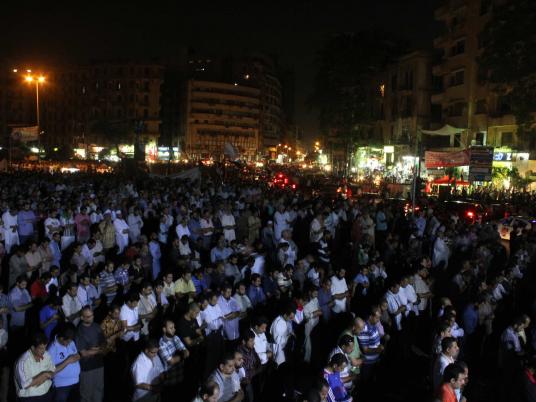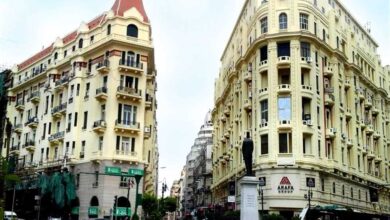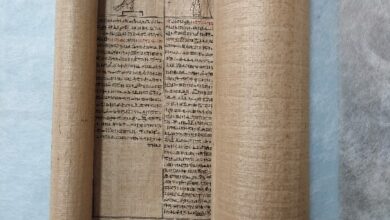
The Muslim Brotherhood has mobilized its supporters for a mass gathering in Tahrir Square in support of President Mohamed Morsy’s recent reshuffling of the Supreme Council of the Armed Forces. But this time, prayer was the Brotherhood’s choice of demonstration tool.
On Thursday, thousands performed the taraweeh prayers, which Muslims perform every night of Ramadan after night prayers, in Tahrir Square as a show of support for Morsy’s bold decision to send senior SCAF leaders to retirement .
Morsy’s move has been interpreted as a victory for the Brotherhood, the country’s prevailing political force, after on-going tension with the military institution over power sharing.
In celebration, Thursday night became a site of constant shifting between the spiritual and the political. The speakers alternated between traditional prayers to God and praises for Morsy and his political decisions. At one point a speaker compared the decisions to the Islamic wars of Prophet Mohamed.
Some of the thousands that took part in the Tahrir taraweeh, which included a high percentage of Muslim Brothers bused in from different governorates, said they had political motivations for taking part in the otherwise traditionally spiritual activity.
“It’s not about the prayer, we are here to show people that there is support behind Morsy’s decision,” says Saad Helmy, a school headmaster who came from Kafr al-Sheikh specifically for the event.
Hend al-Sayed, a member of the Brotherhood’s Freedom and Justice Party who took part in the prayer, said that it was only natural to mix religion and politics.
“There is no such thing as separating religion and politics, our religion is all politics, how will anyone succeed without turning to God?” she asks.
The organizers of the event and many of those taking part said that organizing the demonstration in the form of a prayer was only a matter of convenience.
As most religious Muslim Brotherhood supporters dedicate the last 10 days of Ramadan for prayers, they said that the only way to get them into the square is by taking the prayer there.
“All these people here came from the mosque, where they were staying for the last 10 days of Ramadan. We’re not going to leave prayers and go protest,” says Wahid Galal, an architect who’s also a member in the FJP.
But, the reverence and focus that usually characterize prayers in mosques were hard to achieve in the middle of car-filled streets. Throughout the gathering, volunteers struggled to keep traffic moving and deal with angry drivers. Worshipers were mingling and chatting instead of repeating prayers after the imam.
The protest stood as a seeming response to calls by anti-Brotherhood figures to protest the rule of the Brothers on 24 August.
“Those who are calling for 24 August protests want chaos and want to put hurdles in Morsy’s path, and God has taught us that those who have malicious intentions never succeed. Nothing will happen on 24 August,” Galal added.
“This is the religious perspective,” interrupted his friend Mahmoud Afify, “the political perspective is that Morsy is an elected president and those who don’t want him want dictatorship and don’t want to honor the will of the people.”
After praying to God, the crowd turned to praising Morsy.
Mohamed al-Beltagy, the leading Brotherhood figure, gave a speech where he called the day that Morsy reshuffled the military council “one of God’s days,” and said that it will be placed in history with wars led by the prophet Mohamed.
“Allah has blessed us with the ability to prayers out of the mosques into the squares to support what is right, and we will never stop, unaffected by those who want to spoil these historic days which are miracles from god,” he said.
Beltagy said that, with his recent decisions, Morsy has taken the country from military to civilian rule and has unified its leadership and the leadership of its revolution.
“The decisions taken on the 22nd day of Ramadan have broken the back of the counter revolution and of the imaginary revolution and the imaginary revolutionaries, now there is only one revolution with one leader, the Supreme Commander of the Armed Forces,” he said, referring to a title held by Morsy as civilian president.
The crowd followed Beltagy’s speech with the chant “Oh God, bring victory to Morsy and his supporters.”




